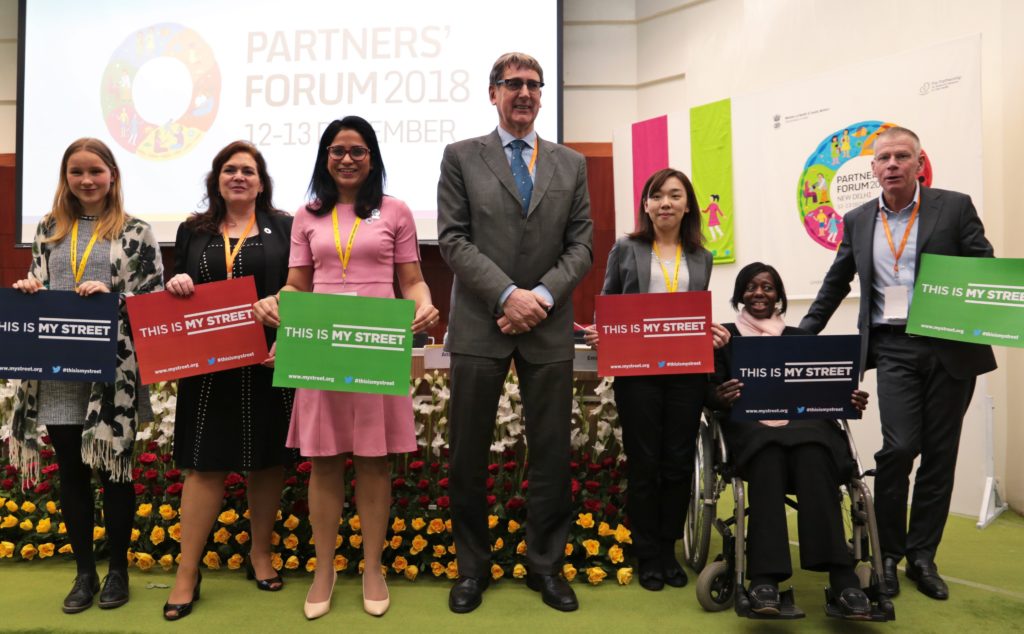 UHC2030 and CSEM were actively represented at the Partnership for Maternal, Newborn and Child Health (PMNCH) Partners’ Forum, through members CORE Group and Women in Global Health. The forum was held in New Delhi, India on December 12-13, 2018. It served as a key advocacy moment to generate greater political momentum towards the “Survive-Thrive-Transform” agenda of the Global Strategy for Women’s, Children’s and Adolescents’ Health, and reaffirm its contribution to driving Universal Health Coverage (UHC) and the Sustainable Development Goals (SDGs).
UHC2030 and CSEM were actively represented at the Partnership for Maternal, Newborn and Child Health (PMNCH) Partners’ Forum, through members CORE Group and Women in Global Health. The forum was held in New Delhi, India on December 12-13, 2018. It served as a key advocacy moment to generate greater political momentum towards the “Survive-Thrive-Transform” agenda of the Global Strategy for Women’s, Children’s and Adolescents’ Health, and reaffirm its contribution to driving Universal Health Coverage (UHC) and the Sustainable Development Goals (SDGs).
The CSEM and UHC2030 representatives presented on the panel ‘Towards UHC, throughout the life course,’ aimed at identifying key lessons and actionable strategies to accelerate progress towards achieving UHC and the global strategy objectives.
Speaking on the panel, Core Group DC Executive Director Lisa Hilmi advocated for three key actions towards UHC: increased investment in community health workers, partnership building beyond the health sector, as well as a more systematic focus on citizen-led accountability. She urged the engagement of civil society at all levels, but particularly the community level. “We need to do this as part of the planning process and not afterwards or as a second thought. By having the diverse stakeholders at the table, including community level engagement, district and national level planning, policies and implementation will be richer and have more buy-in. By involving the community at the start, we ensure an equitable process for even the less-resourced populations,” she said in conclusion of her remarks.
Roopa Dhatt of Women in Global Health also discussed the importance of engaging, and investing in, vulnerable and marginalized populations. She shared a patient story demonstrating that to succeed, UHC must: cover not just curative but prevention and health promotion; take a gendered approach, addressing the social and cultural determinants of health; ensure that young people enter older age as healthy and productive; invest in young people, women and girls as health workers to drive not just UHC, but improve equality and increase economic development.
To learn more about the forum, click here.

